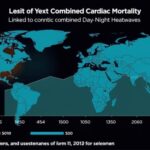
In a pivotal cross-sectional study focusing on a pressing health concern, the knowledge surrounding respiratory syncytial virus (RSV) disease and the eligibility criteria for RSV vaccination among hospitalized adults was found to be surprisingly low. As respiratory syncytial virus is a significant pathogen that primarily affects infants and the elderly, this gap in understanding presents a concerning risk for public health, especially in vulnerable populations. Understanding the nuances of this research is crucial for future interventions and vaccination strategies to ensure better protection against RSV.
The study revealed that older adults and individuals with pre-existing medical conditions were more likely to have received the RSV vaccine. This trend seems to reflect an appropriate prioritization based on risk factors, aligning vaccination efforts with the demographics most at risk for severe RSV-related complications. This data substantiates the importance of focusing public health resources on those who are most vulnerable, yet it also underscores the necessity for broader educational campaigns aimed at increasing awareness of RSV and its vaccine.
Interestingly, sociodemographic differences in vaccine uptake were noted, indicating that while certain groups were well represented, others may not have had equal access or awareness regarding the vaccine. This presents a multifaceted challenge for healthcare providers and public health officials who must navigate not just medical factors, but also social determinants of health that can impact vaccination rates. Strategies must be implemented to ensure equitable distribution of awareness and vaccine access across all demographic groups.
Additionally, the study pointed out the need for enhanced education and outreach efforts that specifically target populations with low vaccination rates. A comprehensive understanding of RSV, its implications, and the importance of vaccination can help mitigate the impact of the virus. Healthcare systems should consider integrating this education into patient care protocols and community outreach initiatives. By fostering a more informed patient population, we can improve vaccination rates and ultimately decrease the incidence of RSV complications in at-risk adults.
The implications of RSV extend beyond individual health; understanding the epidemiology of the virus is vital for anticipating potential outbreaks and instituting preemptive measures. As contagious as it is concerning, RSV can spread easily, necessitating a proactive approach to tackling its prevalence, especially during peak seasons. Public health campaigns tailored to educate individuals about RSV transmission and vaccination can serve as vital tools in curbing the spread of the virus.
Moreover, the study’s findings hint at the potential for enhanced collaboration between institutions, policymakers, and healthcare providers to construct a more robust framework for RSV prevention. By strategically combining resources and expertise, we can develop comprehensive solutions that address the multifactorial aspects of vaccine hesitancy. Emphasis should be placed on community engagement to uplift voices that may be hesitant or unaware of the vaccine’s benefits.
Equally significant is the role of clinical guidelines and recommendations from health authorities which can shape vaccination policies. Continuous updates to these guidelines, based on ongoing research, should reflect the latest understanding of RSV dynamics and vaccination efficacy. Navigating the landscape of evolving guidelines ensures that practitioners remain informed and capable of offering the best advice to their patients.
The significance of data analysis cannot be understated in this realm. Regular assessments of vaccination coverage statistics across demographics will provide necessary insights to refine strategies and interventions. By implementing data-driven approaches, discrepancies in vaccine uptake can be identified and addressed more effectively. Such insights pave the way for targeted health interventions that ensure optimal outcomes across populations.
Looking ahead, the urgent need for an elevated priority on research surrounding RSV is evident. With ongoing investigations into transmission, vaccination strategies, and the overall impact of the virus on public health, a clearer picture will emerge of how to combat RSV successfully. Such research will undoubtedly inform health policies and enhance preparedness frameworks to address potential RSV outbreaks in vulnerable populations.
In conclusion, addressing the knowledge and vaccination gaps associated with respiratory syncytial virus is essential for safeguarding public health. Initiatives should focus on education, equitable access, and sustained outreach to ensure that all communities are informed and empowered to make proactive healthcare choices. As we enhance our understanding of RSV, we can shift from a reactive to a proactive stance in managing its effects, ultimately protecting the most vulnerable and fostering a healthier society overall.
Subject of Research: Knowledge of respiratory syncytial virus (RSV) disease and RSV vaccine eligibility
Article Title: Insights into the Understanding and Vaccination of Respiratory Syncytial Virus Among Adults
News Publication Date: October 2023
Web References: [Available upon publication]
References: [Available upon publication]
Image Credits: [Available upon publication]
Keywords: Respiratory syncytial virus, vaccination, older adults, public health, vaccine uptake, health education.
Tags: addressing vaccine hesitancy in vulnerable populationscommunity health resources for vaccinationdisparities in access to RSV vaccinationimproving RSV knowledge among healthcare providerspre-existing medical conditions and RSV riskprioritizing high-risk groups for vaccinationpublic health interventions for RSVrespiratory syncytial virus educationRSV vaccination awarenesssociodemographic factors in vaccine uptakestrategies for increasing RSV vaccine awarenessvaccination rates in older adults



